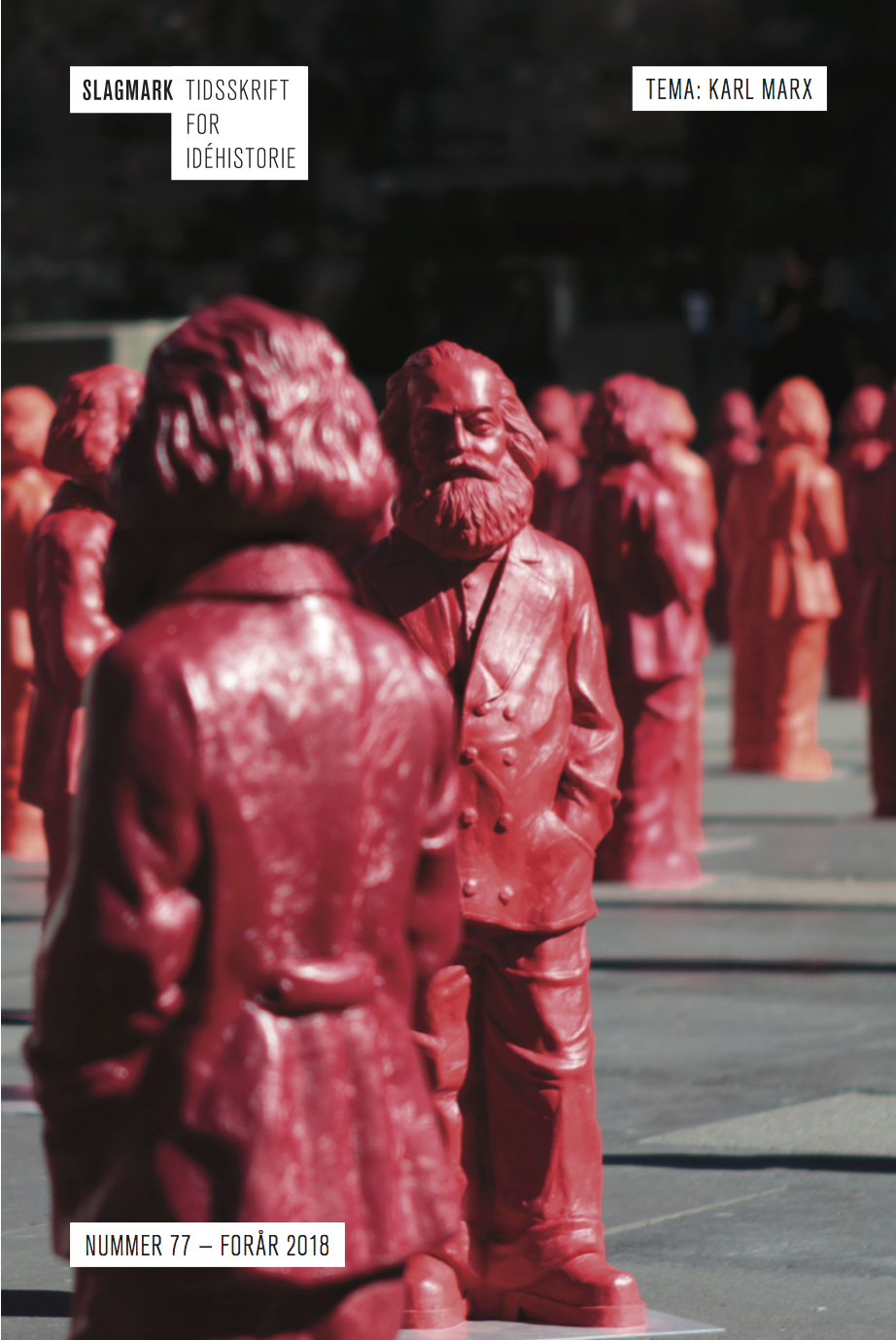Den dobbelte fordrejning: Begrebet fetichisme i kritikken af den politiske økonomi
DOI:
https://doi.org/10.7146/slagmark.vi77.124228Keywords:
fetish, Karl Marx, ideology, value, MarxismAbstract
THE DOUBLE INVERSION - THE CONCEPT OF FETISHISM IN THE CRITIQUE OF POLITICAL ECONOMY
Karl Marx’s critical analysis of ‘the secret of the fetishism of commodities’ – according to which the universal domination of the commodity form makes social relations appear in the form of relations between things – is today widely regarded as a central element of the critique of political economy. The concept of fetishism was generally neglected until in the 1920’s, and the debates around this concept did not really take off until the 1960’s. Since then, there have essentially been two predominant interpretations of Marx’s concept of fetishism: on the one hand those who regards fetishism as an ideological phenomenon, as something that has to do with the way in which social reality is represented for and in the social agents. On the other hand there are those who insists that fetishism refers to a certain displacement or inversion at the level of social practice itself, and not its ideological representation. In this article, I review these conflicting readings in the light of a close reading of Marx’s use of the term fetish(ism) in all of his writings from the Grundrisse (1857) onwards. I argue that Marx used this term to refer to an ideological phenomenon, and that he was right in doing so. I also point out that this does not entail subscribing to a naïve view of ideology as false consciousness or class manipulation that can be abolished by enlightenment and criticism.





